Fancy a wolfberry gelato or herbal cocktail? In China, TCM meets F&B amid wellness boom
Sign up now: Get tips on how to grow your career and money
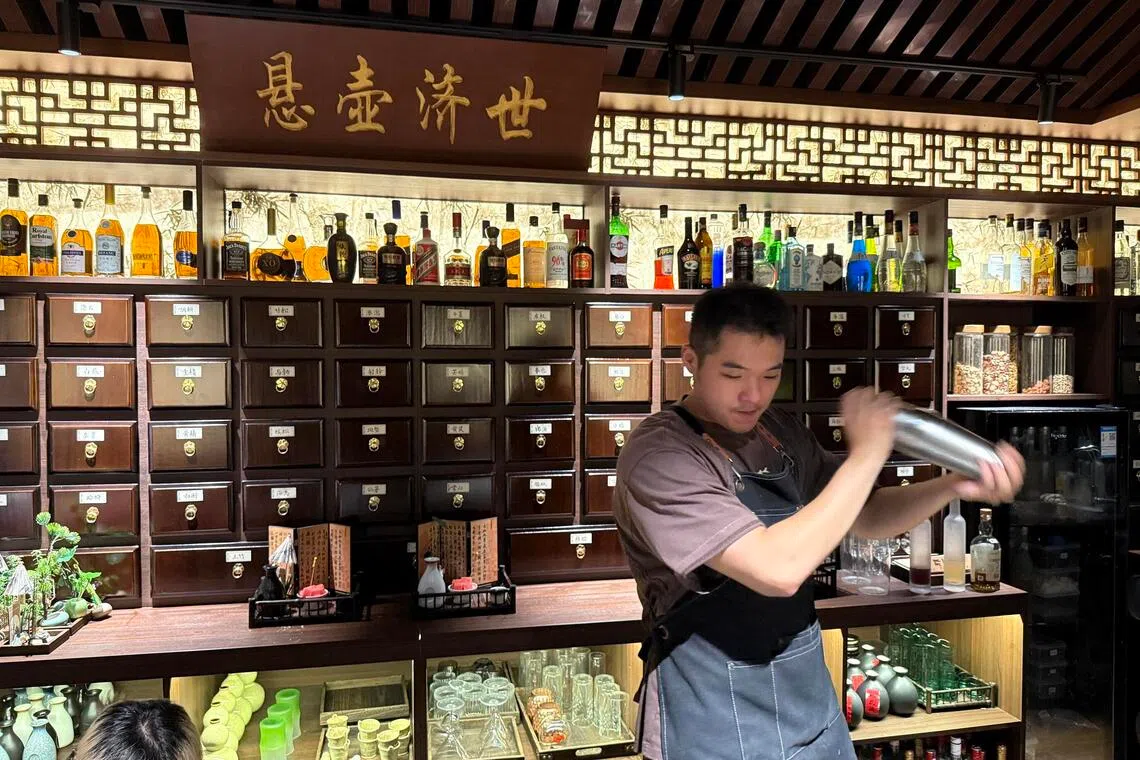
A bartender shaking up a herbal cocktail at Niang Qing, a TCM-themed bar in Shanghai.
ST PHOTO: JOYCE ZK LIM
Follow topic:
- TCM-themed bars and shops are growing in China, driven by young people's rising interest in "yang sheng" (wellness) and TCM practices.
- Niang Qing, a TCM bar founded by TCM students, exemplifies this trend, offering herbal cocktails after pulse readings.
- Despite concerns about gimmicks and potential misuse of herbs, some experts believe this trend could popularise TCM, while others caution about health risks.
AI generated
SHANGHAI – Jars of herbs adorn the entrance to a bar in Shanghai, where nightcaps come with some traditional Chinese medicine (TCM) on the side.
Customers get their pulses read before downing herbal cocktails at the TCM-themed bar – one in a growing number of such joints as savvy entrepreneurs tap a swell of interest in yang sheng, or wellness, a practice rooted in TCM.
It is not just bars: Stores selling food and drink infused with TCM – milkvetch root (known in Mandarin as huang qi) bread, monkfruit americano and ginseng bubble tea to name a few – have been springing up across the country in recent years.
The proliferation of such businesses, dismissed as gimmicky by some, is seen by others as reflecting a growing interest among young Chinese in TCM – and a way to further popularise it across the country.
Niang Qing is one such enterprise. The bar was founded by students from the Shanghai University of TCM, who run it at night after their day classes. They opened their first outlet in 2024 in Anhui, followed by two outlets in 2025 in Shanghai, and recently raised funds to open six more in places from south-eastern Zhejiang and central Henan to north-western Qinghai.
There, patrons can get their pulses read and tongues checked by an in-house “physician” – often a recent graduate – who comments on their overall health and body constitutions.
A bartender then shakes up a blend of yellow rice wine and herbs said to suit their respective constitutions. A concoction for people with “yang energy deficiency”, for instance, includes “warming” herbs such as danggui (angelica root), longan, dried ginger and cinnamon.
“We are not a medical facility... and of course, people shouldn’t drink too much,” said Mr Wang Weijie, 22, one of the bar’s co-founders. But to the extent that they can and want to imbibe, his bar offers low-alcohol beverages that are “less harmful to the human body”, he added.
Mr Wang, whose family grows Chinese herbs in eastern Anhui province, said he was inspired to start his business after seeing that more young people were warming to the idea of TCM.
That trend can be seen at the clinic of TCM physician Tang Yao in Beijing, where he said there have been more walk-ins by young people, especially after the Covid-19 pandemic.
“Nowadays, everyone’s pace of work is so fast and the pressure is so large... that more young people are starting to care about their bodies,” he said, citing insomnia and anxiety as among their complaints.
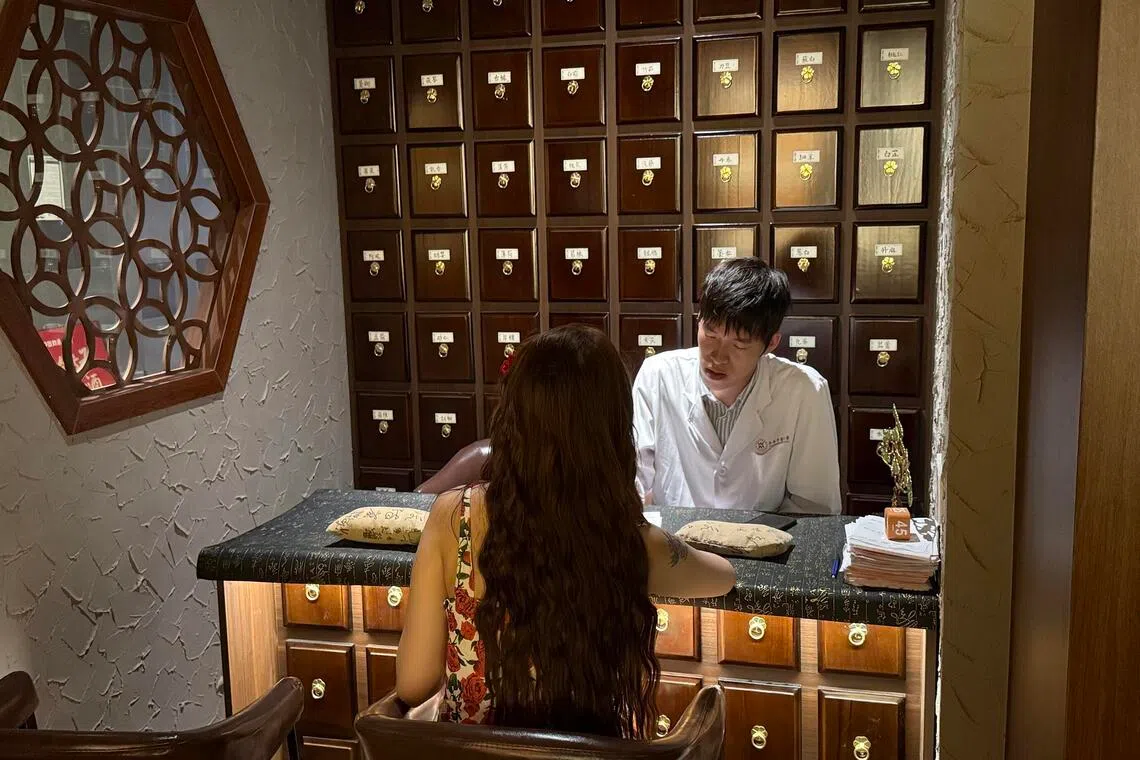
A TCM physician reading the pulse of a customer at Niang Qing, a TCM-themed bar in Shanghai.
ST PHOTO: JOYCE ZK LIM
It is a sentiment echoed by 35-year-old Vanessa Li, who since this summer has gone for weekly moxibustion sessions to relax and boost her blood circulation.
People around her have “definitely” been paying more attention to wellness while dealing with “exhausting” jobs, she said while nursing a ginseng and licorice-infused cocktail at Niang Qing, the TCM bar, with a friend.
Stressed-out youth have in recent years helped to drive a boom in China’s wellness industry, which appears to be a bright spot even as consumers hold back on spending amid a tepid economy.
In 2024, China’s market for wellness teas grew by some 25 per cent to reach 51.28 billion yuan (S$9.3 billion), and is expected to more than double that value by 2028, according to Chinese market research firm iiMedia Research.
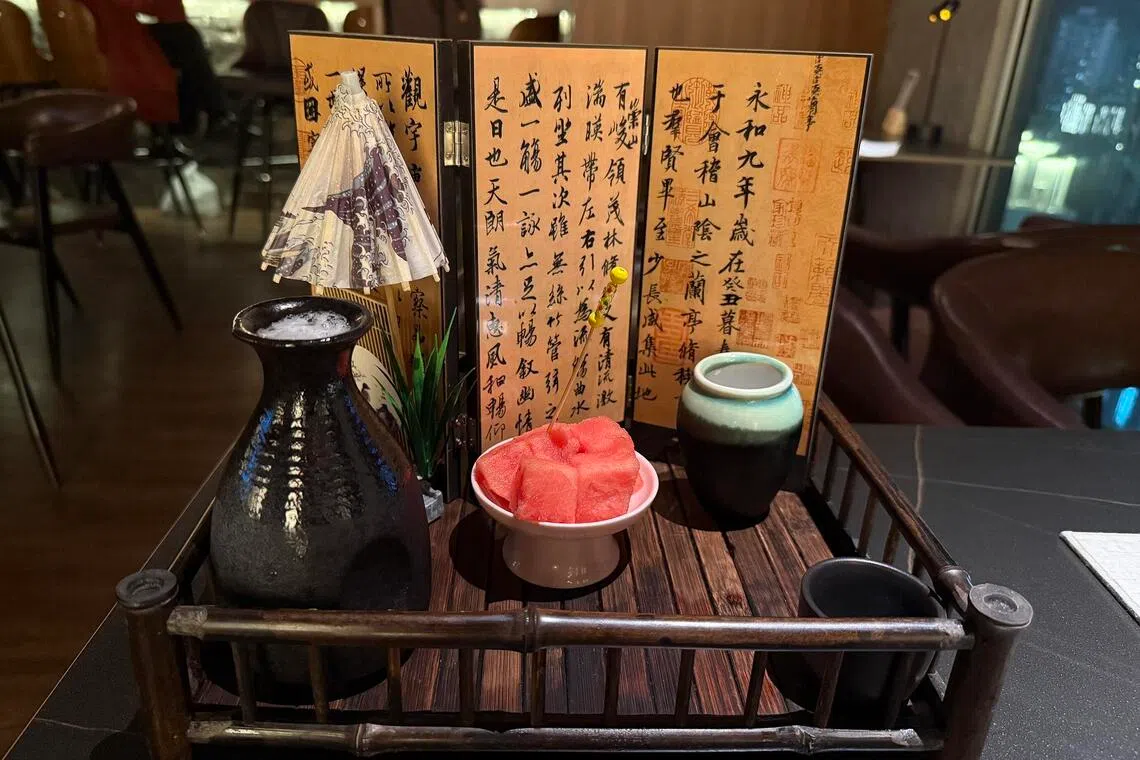
A herbal cocktail at Niang Qing, a TCM bar in Shanghai.
ST PHOTO: JOYCE ZK LIM
On social media, all manner of wellness advice is dispensed, from recipes for homemade herbal drinks, to tips for people to suntan their backs – said to help relieve “dampness” and boost energy.
Riding this boom, business owners, and even TCM hospitals, have in recent years been coming up with new ways to marry TCM with food and drinks. Chinese herbs – or their flavours – have been infused into bread, cake, ice cream, coffee, bubble tea and more. Luli, a TCM bubble tea brand which has more than 160 outlets in China, has even opened stores in Singapore, Malaysia and Vietnam.
But even as TCM-inspired food and beverage outlets mushroom across China, not everyone is biting. Some question exactly how healthy these products actually are.
“‘TCM paired with everything: genuine wellness or fake marketing?” read the headline of an article in May by the Economic Information Daily, a Xinhua subsidiary.
In an online poll by local outlet Beijing News, 80 out of 110 respondents said they would not buy “medicinal bread” – because that amounted to “paying an IQ tax”.
Still, that did not stop long lines from forming at a TCM hospital in Yangzhou, a city in coastal Zhejiang province, when it rolled out buns like “eight treasure scones” in April.
Dr Zhao Dandan, an assistant research fellow at the Beijing University of Chinese Medicine, said of the trend: “I think there’s good and there’s bad.”
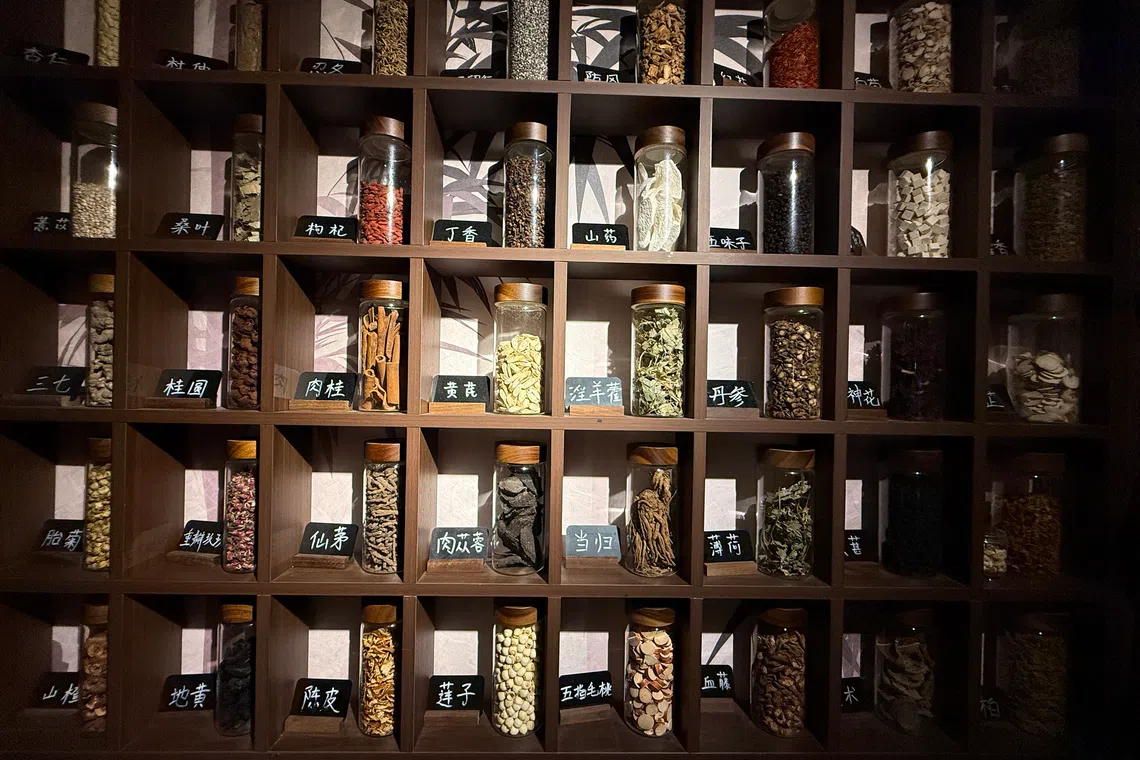
Jars of herbs line the entrance to Niang Qing, a TCM-themed bar in Shanghai.
ST PHOTO: JOYCE ZK LIM
The upside is that TCM, if found to be useful, could gain wider acceptance as people come into more contact with it, she said.
But gimmicks are unavoidable, Dr Zhao said, adding that people might also end up eating too much of the wrong herbs, especially if they do not have a good understanding of what their bodies need.
At a TCM-inspired gelato shop in Shanghai, a shop assistant makes no pretences about what health benefits her ice cream might afford.
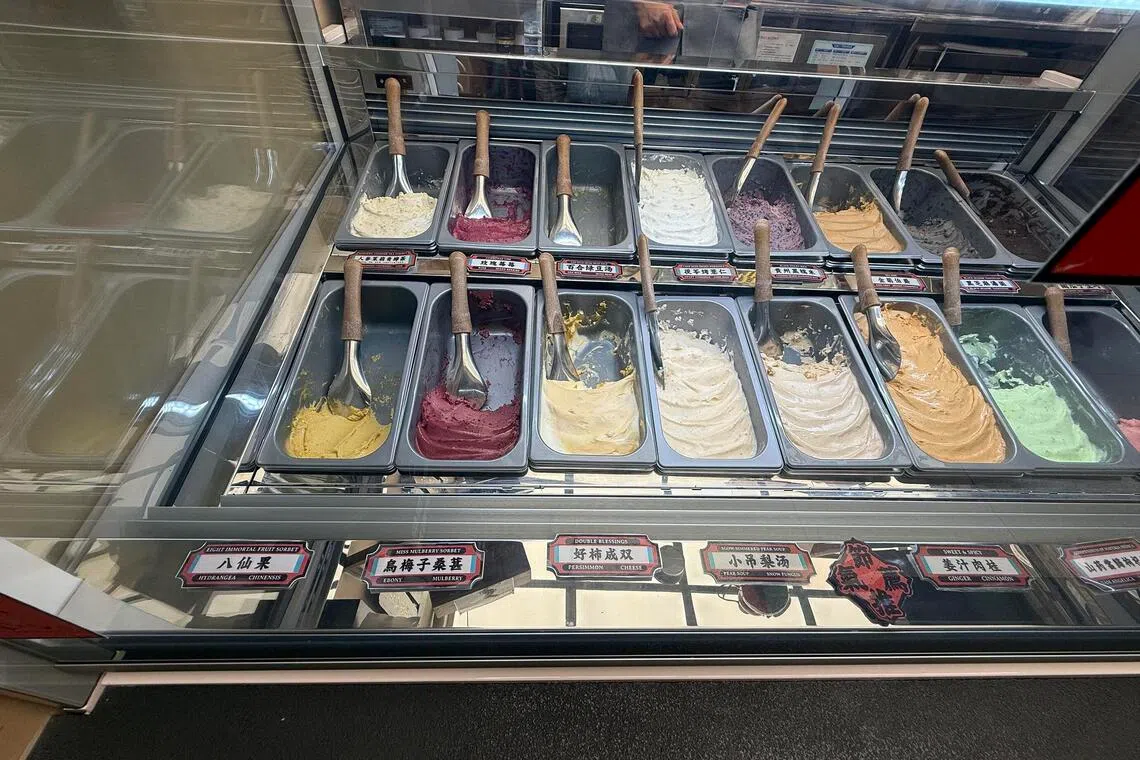
Ice cream at a TCM-inspired gelato shop in Shanghai, with flavours such as ginseng and angelica.
ST PHOTO: JOYCE ZK LIM
“It’s just a psychological thing... in itself, there’s no real effect,” she said, standing behind rows of gelato flavoured with everything from ginseng and wolfberries, to angelica and hydrangea.
But Mr Wang, of the TCM bar, hopes his customers will go home with a little more.
“I hope people will have a new understanding of TCM culture, and come to like Chinese herbs,” he said.


